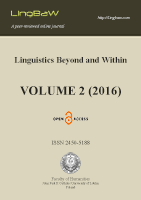The influence of the language of new media on the literacy of young people in their school assignments and in leisure
The influence of the language of new media on the literacy of young people in their school assignments and in leisure
Author(s): Blaženka Filipan-Žignić, Vladimir Legac, Katica SoboSubject(s): Media studies, Theory of Communication, School education, Methodology and research technology, Applied Sociology, Social Informatics
Published by: Wydawnictwo KUL
Keywords: Internet; Facebook; mobile phone; young people; language of new media; standard;
Summary/Abstract: The authors of this research study try to explore the real literacy among young people of today resulting from the influence of the language of new media (especially Facebook and the mobile phone). The impetus for this study comes from frequent complaints that the language of young people has deteriorated due to the negative impact of the language that young people are using in the new media. The authors have done this through an analysis of the way students write in their school assignments and in writings done in their spare time in the new media with regard to (non) existence of the language of new media (such as abbreviations, emoticons and other iconic signs, capitals, dialecticisms, anglicisms, vulgarisms, etc.). In their analysis, the researchers used a computer programme Word Smith Tools 6.0 (Scott 2006). The authors aimed to find out whether or not students in their private language texts use the language of new media (written language with many elements of spoken language and with many abbreviations) and whether or not the students in their school assignments consistently use the standard language without the elements that they normally use in their own language in the new media. The results have shown that secondary school students do consistently write in the standard language in their school assignments, whereas in their leisure activities they use all the elements of the language of new media.
Journal: Linguistics Beyond and Within (LingBaW)
- Issue Year: 2/2016
- Issue No: 2
- Page Range: 77-96
- Page Count: 20
- Language: English

